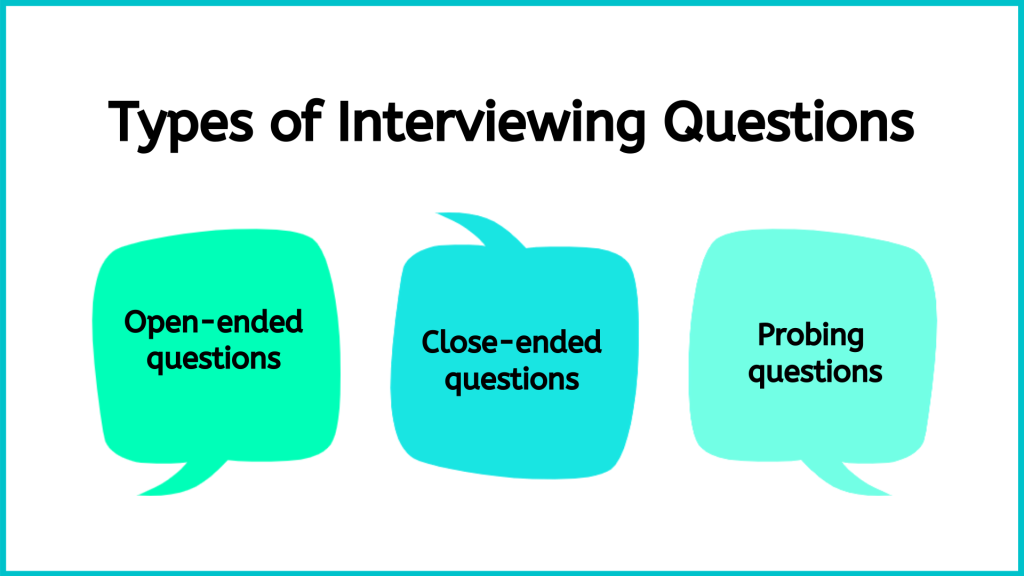Communication
Types of Interviewing Questions
Jennifer Lapum; Oona St-Amant; Michelle Hughes; and Joy Garmaise-Yee
There are three types of questions that guide the client interview.
- Closed-ended questions
- Open-ended questions
- Probing questions

Figure 2.4: Types of interviewing questions
Closed-ended questions are direct questions that you ask when you are seeking precise information. These types of questions typically generate a short answer and do not facilitate a dialogue. Here are some examples in which the answers are typically one word:
- “Do you smoke?”
- “Have you been tested for tuberculosis?”
- “What year were you born?”
- “Do you take the medication as directed?”
- “When did your rash start?”
Open-ended questions are types of questions that invite the client to share descriptive answers, open up about their experience, and answer in a way that is most relevant or comfortable from their perspective. In response to open-ended questions, clients typically talk in sentences and may even tell stories (as opposed to the short answers to closed-ended questions). Although clients may provide a short answer, this type of question still provides the opportunity for you to probe further. Here are some examples:
- “What was going on in your life when you first started feeling depressed?”
- “Tell me about when you first started smoking.”
- “How have you been feeling in the past week?”
- “Tell me about the challenges you are having with your medication regimen?
You should listen to the answer carefully so that you can authentically respond to what the client said and possibly probe further.
Probing questions are types of questions and statements that allow you to gather more subjective data based on a client’s response. These types of questions can also be used to summarize and clarify a client’s response or resolve discrepancies that you identify. These questions and statements can be open- or closed-ended. Here are some examples:
- “Tell me more.”
- “How did that affect you?”
- “When talking about your health, you said ‘don’t cross the bridge til you come to it,’ can you tell me what you mean by that?”
- “You said that you are doing ‘well’ since your partner’s death, but I noticed that you are teary eyed as you are speaking about them. Can you talk a bit about that?”
Points of Consideration
Learning how to respond
Sometimes you won’t know how to respond when a client says something. For example, they may say something that you don’t understand or something that surprises you or takes you off guard. You may consider responding with statements like, “Tell me more” or “Tell me more about what you mean by that.” Avoid statements that may conjure judgement such as “why” or “how come” – these statements can be interpreted as a demand for an explanation and make the client feel defensive.
Activity: Check Your Understanding
Media Attributions
- Figure 2.4

